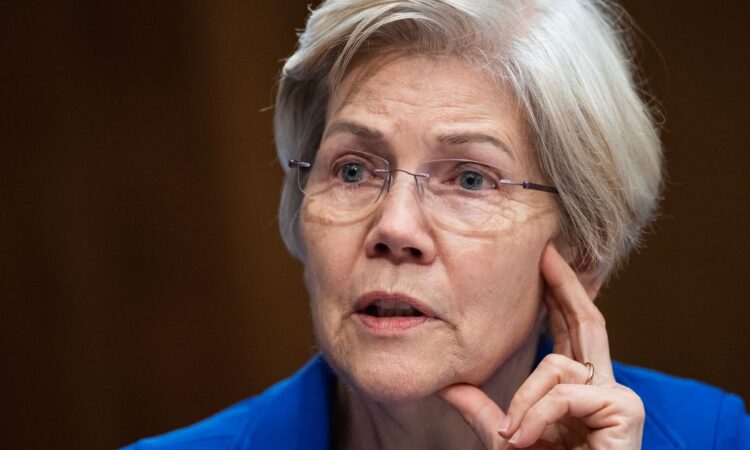
Sen. Elizabeth Warren (D-Mass.) and Rep. Ilhan Omar (D-Minn.) released a letter Thursday demanding answers from the heads of several leading U.S. banks about policies that have disproportionately targeted Muslim Americans and communities of color.
“The lack of information regarding the scope of de-risking practices and the impact on Muslim American consumers and other minority communities hinder policymakers’ ability to protect consumers,” reads the letter, which was exclusively shared with HuffPost before it was sent to executives of Wells Fargo, JPMorgan Chase, Bank of America and Citibank.
A quarter of all Muslim Americans have faced strenuous challenges while banking in the United States, according to a report released last year by the Institute of Social Policy and Understanding, a nonprofit that provides research about Muslims in the U.S. Muslim Americans said their bank accounts were suspended or closed without explanation, and their payments were subjected to extra scrutiny, part of a phenomenon often called “banking while Muslim.”
Of the Muslim Americans who’ve experienced challenges with financial institutions, 93% said they’ve faced challenges with their personal bank accounts. Among them, 40% reported they were turned down when trying to open a new account and 33% said their personal accounts had been suspended or closed. Muslims were also twice as likely as the general population to have issues with business and nonprofit accounts.
“Banks don’t get a free pass to discriminate against Muslim Americans and other minority groups in the name of preventing suspicious banking activity,” Warren told HuffPost in a statement. “I am concerned that big banks are engaging in practices that harm consumers and undermine financial access ― and I’m seeking answers to make sure they are held accountable.”
Citibank and Bank of America declined to comment for this story. Executives from Wells Fargo and JPMorgan did not immediately respond to HuffPost’s requests for comment.
The lawmakers’ letter calls out the banks’ “de-risking” practices, wherein banks monitor and flag customer accounts for suspicious activity to prevent issues such as money laundering. Muslim Americans said they have been disproportionately targeted.
“De-risking poses a particularly severe threat for customers from the Muslim American community. Reports indicate that Muslim and Arab, Middle Eastern, and South Asian Americans may be considered ‘high risk’ when sending payments or remittances abroad or donating to charities or religious institutions,” reads the letter, which was also signed by Sen. Bernie Sanders (I-Vt.) and Reps. Ayanna Pressley (D-Mass.) and Rashida Tlaib (D-Mich.).
Nearly two years ago, dozens of lawmakers led by Warren and Omar sent a letter to Treasury Secretary Janet Yellen and other banking officials, urging them to reassess policies and practices that actively discriminate against Muslim Americans and communities of color. A month after that letter was sent, the Treasury Department released a report about de-risking and noted that it “undermines several key U.S. government policy objectives.” Still, the practice continued, and customers continued to report that their bank accounts were closed without notice.
In 2019, a Muslim woman filed a complaint against Citibank in New York after the bank allegedly prevented her from opening an account, saying it first needed to investigate her husband, who has an Arabic last name. In 2017, a Muslim man, his wife, and his 15-year-old daughter were detained by police when a teller called 911 as the man tried to deposit a check. A 2014 report by the Los Angeles Times found about a dozen account closures involving Muslims and immigrants from the Middle East and their nonprofits.
“While we acknowledge that financial institutions must operate within the law and may not discriminate on impermissible grounds, the pattern of account closures raises concerns that require further scrutiny,” says the letter, urging the banking heads to respond to a set of questions by March 13.
“It is essential that your bank demonstrate its compliance with legal non-discrimination standards and engage in a socially responsible manner to ensure equitable access to banking services,” the letter says. “This obligation is particularly pertinent given the disproportionate impact on Muslim Americans, who are more likely to transact with jurisdictions deemed high-risk.”





